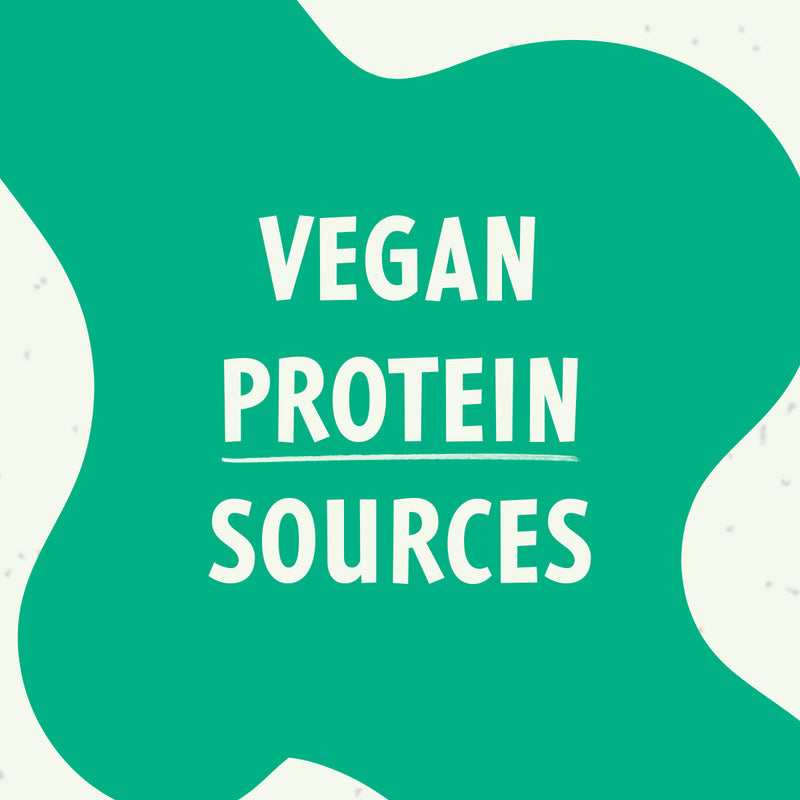
Veganuary: The Best High-Protein Vegan Foods
Record numbers of people are thought to be exploring the benefits of switching up their diets in aid of Veganuary this month. But as January also tends to coincide with a full-throttle approach to fitness and a healthy lifestyle, a balanced diet also tends to be at the top of the agenda too.
So, how do you navigate getting the amount of protein you need when you’re on a vegan diet?
Well, we have all the advice you need on the best vegan protein sources to support you and your training goals.

WHY DO WE NEED PROTEIN?
Thought protein was just for bodybuilders? Think again! Protein is an essential macronutrient that we all need for growth, repair and maintenance in the body, especially for bones and muscles. It also contributes towards the production of enzymes, hormones and other body chemicals, alongside being a building block for skin, cartilage and blood.
If you exercise at a high level, having extra protein soon after a training session can help muscles rebuild.
HOW MUCH PROTEIN DO I NEED?
The Reference Nutrient Intake (RNI) for an average adult is set at 0.75g of protein per kg of bodyweight per day. So, an adult weighing 60kg needs 60 x 0.75g per day, which is 45g.
However, if your goal is muscle gain, you should aim for between 2 and 2.2g of protein per kg of bodyweight.
CAN I GET ENOUGH PROTEIN AS A VEGAN ATHLETE?
As a vegan, your protein needs are the same as someone who isn’t vegan. However, you need to consider the quality and variety of your vegan protein sources.
The main challenge facing vegans lies with separating protein from other macronutrients. Animal sources of protein are much higher in protein than vegan foods. Vegan foods tend to be combinations of proteins and fats (nuts, seeds) or proteins and carbohydrates (pulses, legumes). There’s nothing wrong with that, it just means you’ll need to be more creative and pay closer attention to your macronutrient numbers if you track your nutrition.
Regardless, there are plenty of plant-based protein sources, which you can discover below. Make sure, when you’re training especially, you have a quality plant protein powder or blend to help you get enough protein in your diet. Space your meals out every three to four hours too to ensure you get regular protein feedings.

THE BEST HIGH-PROTEIN VEGAN FOODS
QUINOA
APPROX 4g OF PROTEIN PER 100g SERVING
This super-grain is not only a complete protein - meaning it contains all 22 amino acids - it’s also really versatile and is a great alternative for pasta or rice, making it an ideal base for any meal. Quinoa is packed full of micronutrients too with high levels of fibre, iron, lysine, magnesium and potassium.
TOFU
APPROX 8g OF PROTEIN PER 100g
Derived from soya, tofu provides an alternative plant-based protein source with a good amino acid profile, as well as fatty acids and calcium. Low in calories and carbohydrates too, tofu is super versatile and can be a particularly tasty addition to stir fry dishes, curries and salads. You can even try blending it into soups to make them creamier and higher in protein!
NUTS & SEEDS
APPROX 20g OF PROTEIN PER 100g
Whether sprinkling over porridge, throwing into smoothies or snacking on in the afternoon, nuts and seeds are a good source of protein for vegans. But that’s not all they’ve got going for them, they also have the added benefit of containing fatty acids, calcium, zinc and selenium.
Some of the best nut and seed proteins include:
- Hemp seeds: 5g per heaped tablespoon.
- Pumpkin seeds: 4g per tablespoon.
- Almond: 3g for every six almonds.
- Walnuts: approximately 3g for every three whole walnuts.

PULSES
FROM 5 TO 9g OF PROTEIN PER 100g
No, not that thing that tracks your heartbeat - a pulse is an edible seed that grows in a pod and, therefore, includes all beans, peas and lentils. Lentils in particular are a great source of plant protein, as they’re nutrient-dense, providing a fantastic source of iron, fibre, folate and magnesium.
Affordable, low-fat and offering plenty of variety, pulses include:
- Chickpeas (calling all hummus fans!): 7g of protein per 100g.
- Lentils: around 8 to 9g of protein per 100g.
- Beans, including black-eyed, pinto, butter, cannellini, soya, edamame and kidney: between 7 and 10g per 100g.
- Baked beans: 5g per 100g - however, watch out for the salt content.
OATS
10g OF PROTEIN PER 100G
Eating oats is an easy and delicious way to add protein to any diet. They’re also an excellent source of fibre and contain magnesium, zinc, phosphorus and folate.
You can use oats in a variety of recipes ranging from oatmeal to veggie burgers. They can also be ground into flour and used for baking.

As with any change to your diet, going vegan requires careful thought and planning. One of the most important things to remember is to consume a variety of high-protein vegan foods to give your body all the protein it needs to support bodily functions, and your training goals.